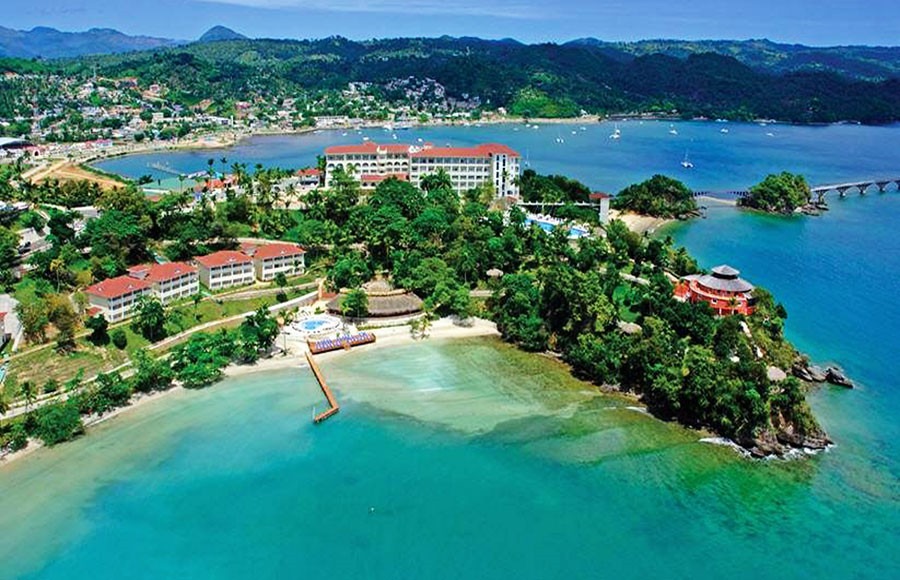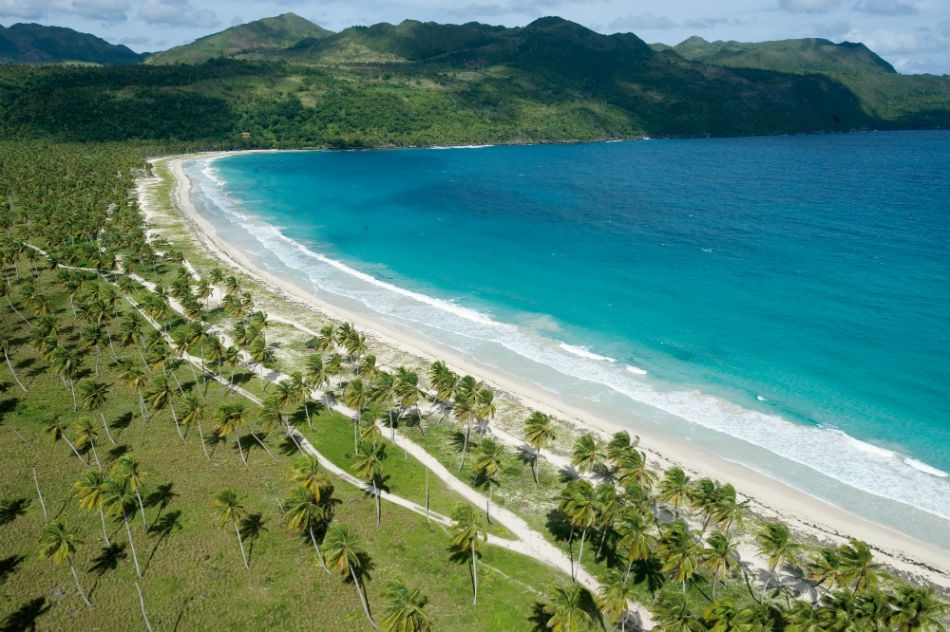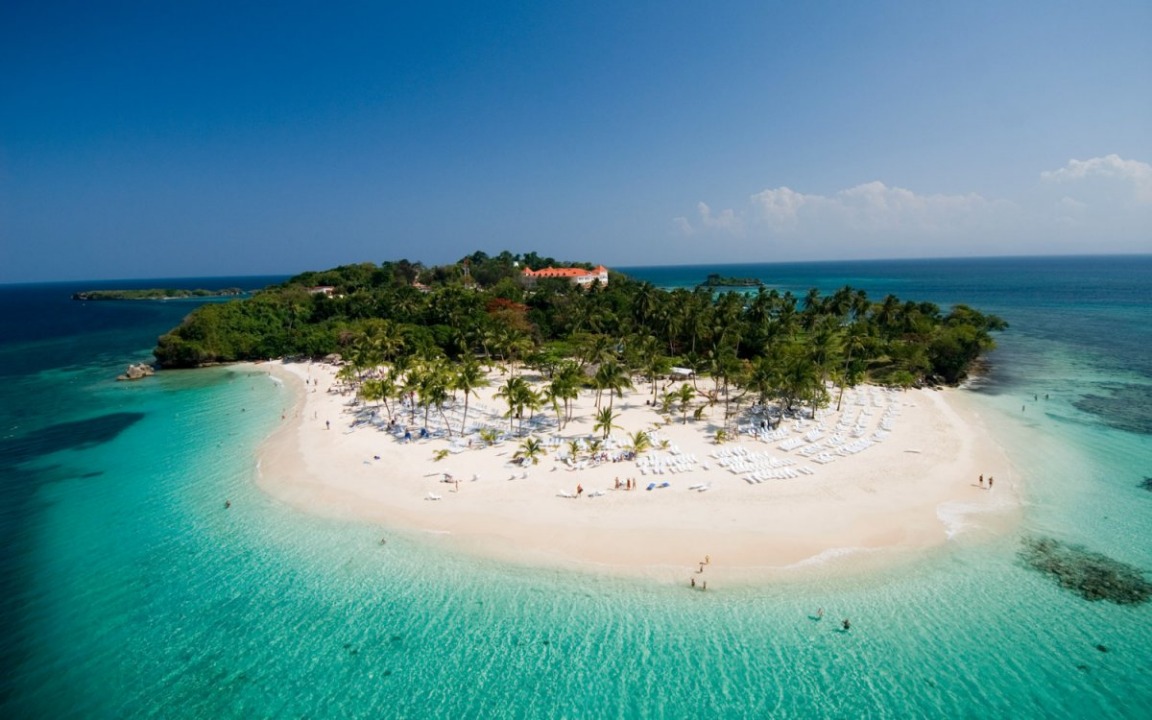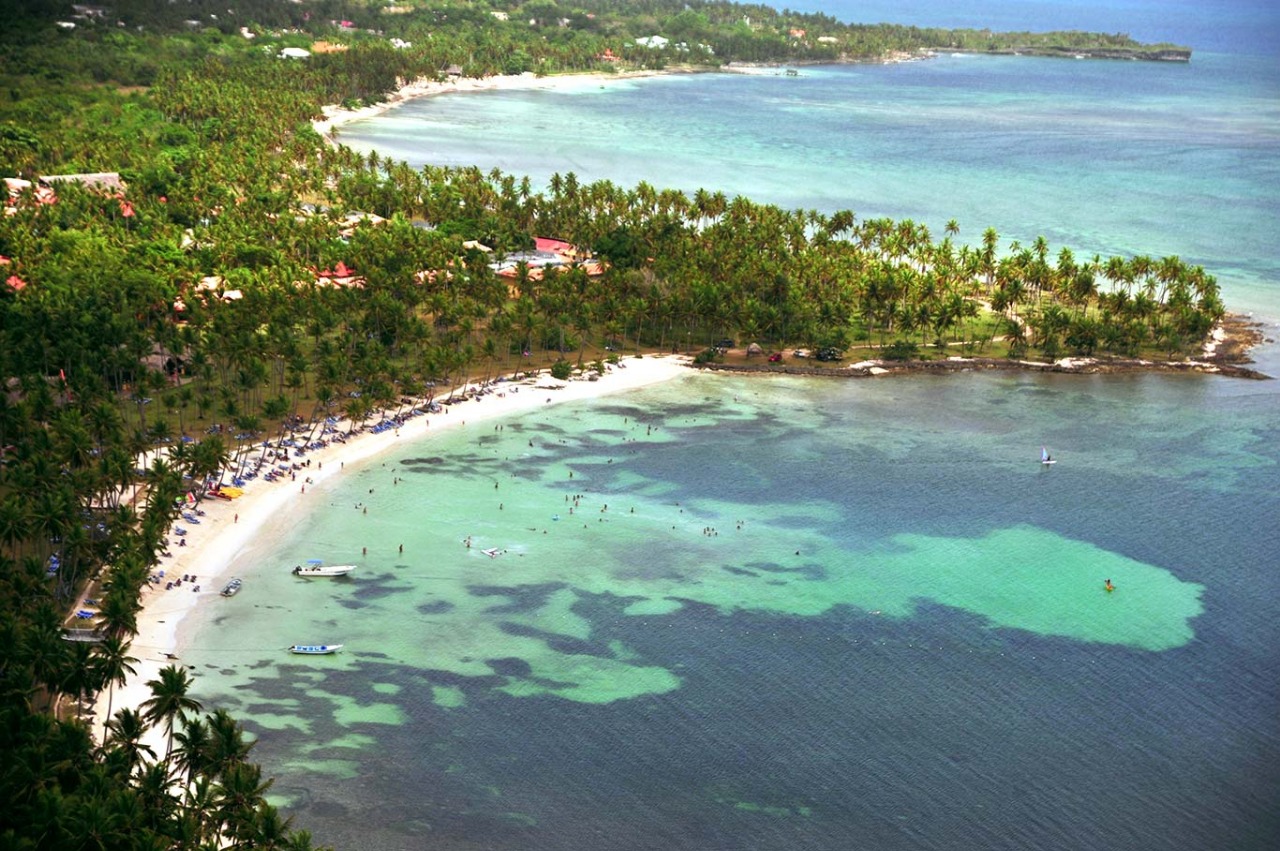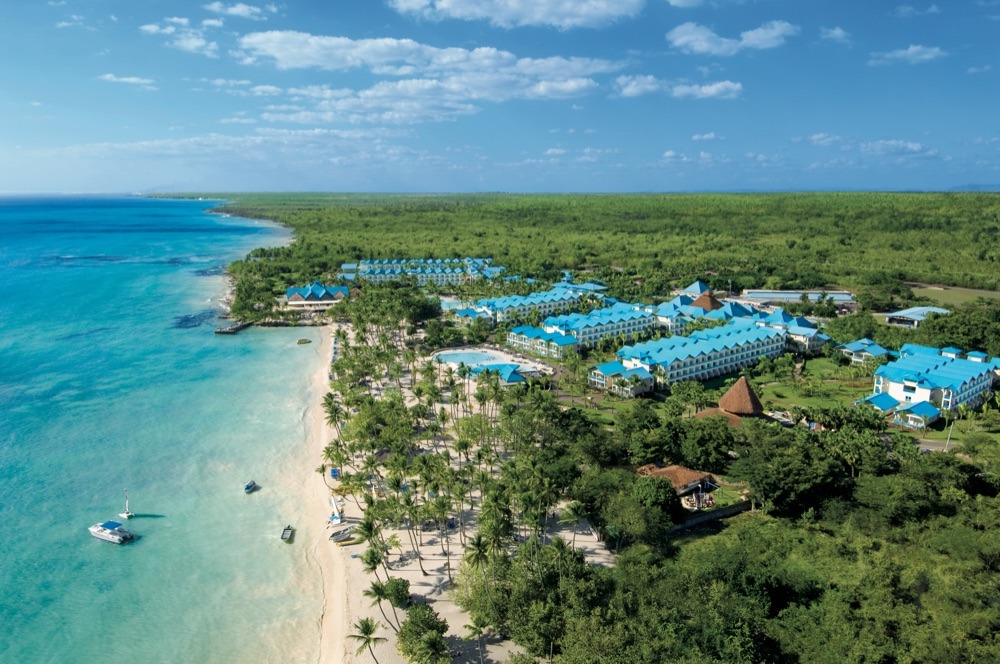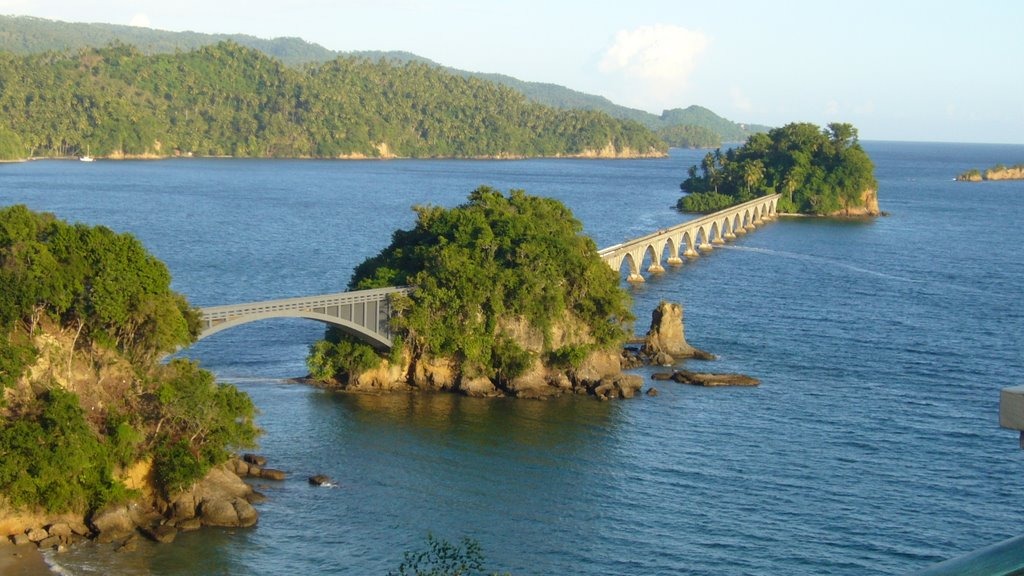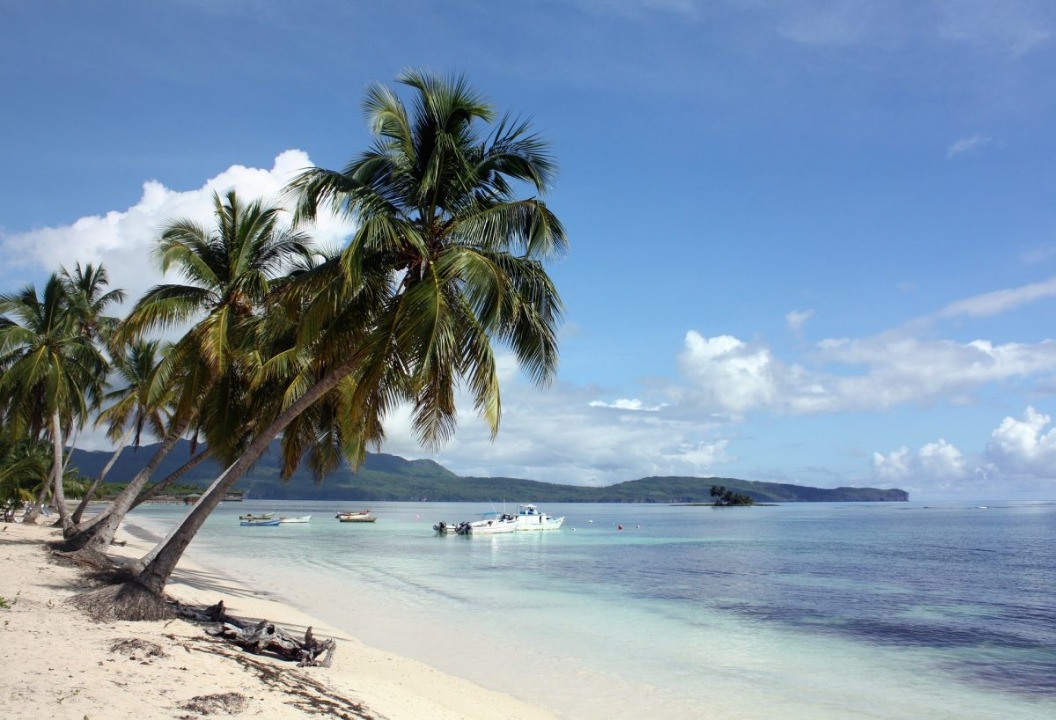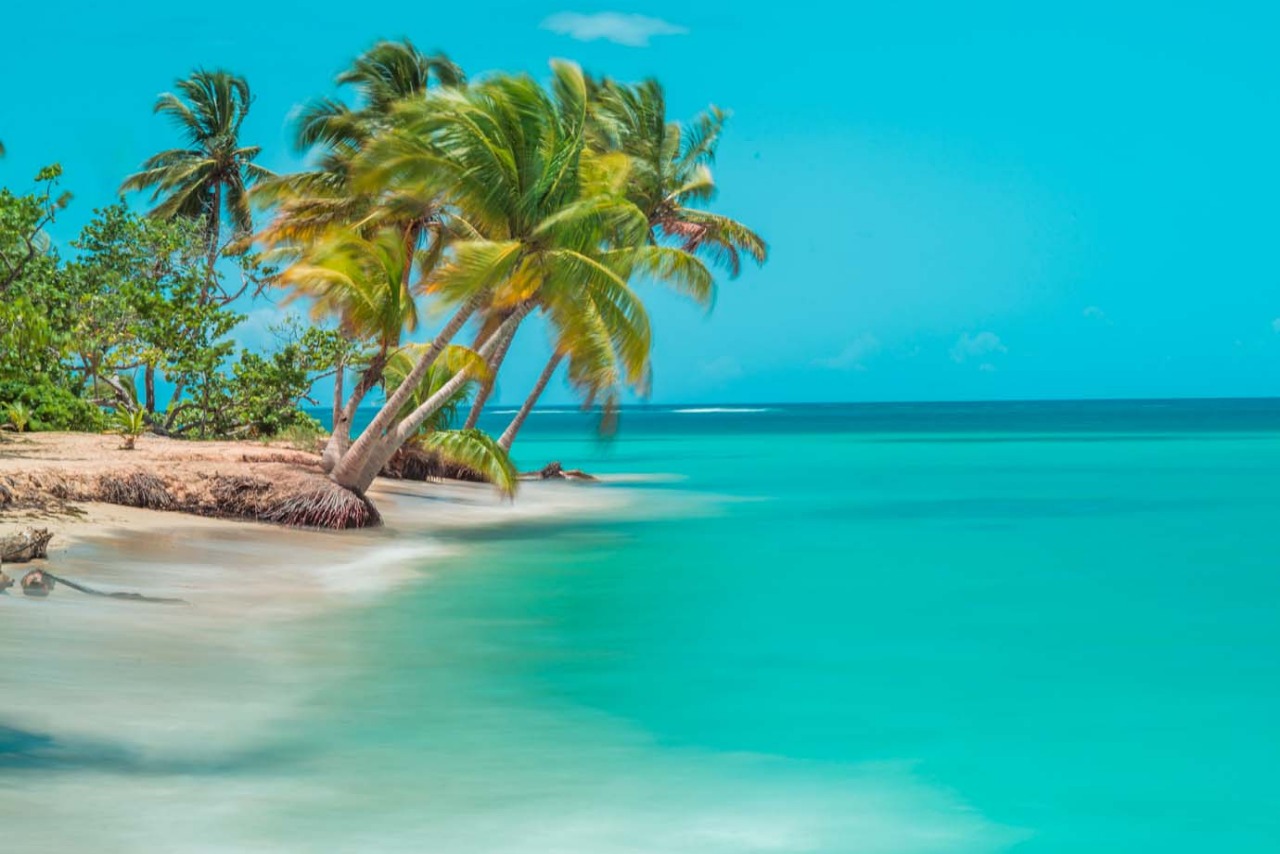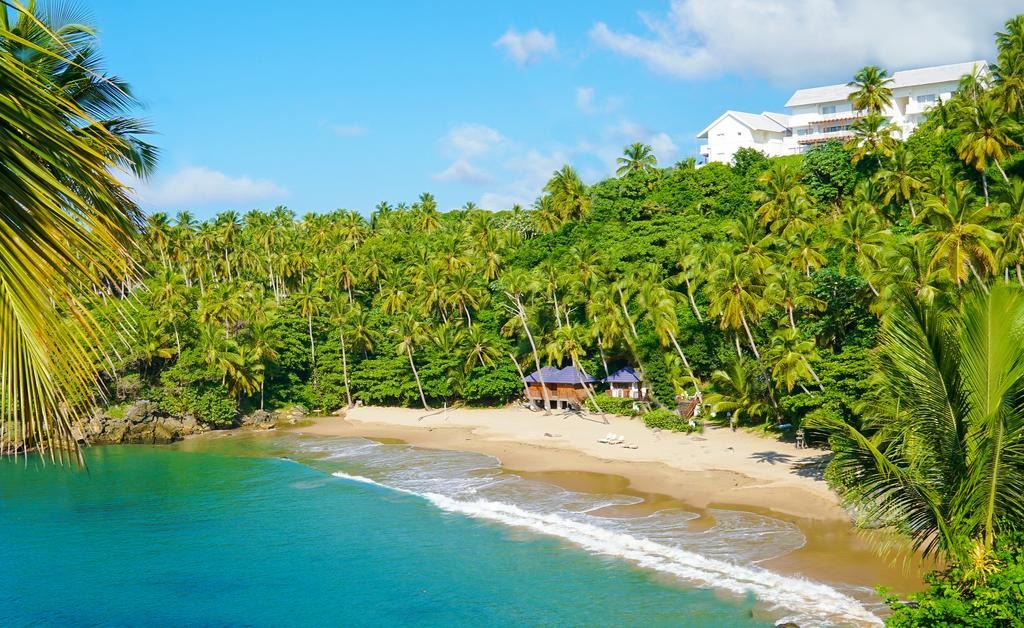Pictures of: Samana, Dominican Republic
Location map
Airports
Hotels and other Accommodation
World Nomads
The Travel Insurance with the largest coverage

The Travel Insurance with the largest coverage

Samana
The Samana Peninsula is located in the far northeast of the Dominican Republic.
Christopher Columbus, the first European to see the contours of the northern coast of La Española (name by which the island where Haiti and the Dominican Republic are located), described it as "the most beautiful land human eyes have ever seen."
The diversity and cultural heritage of the Samana Peninsula is curious and fascinating, as shown by the cultural remains left by the Taino people on the cave walls. Here, African dances such as “bamboulá” and traditional “bachata” are still practiced, and the Anglican culinary heritage allows us to taste rice and fish with coconut as well as Dominican Creole food like “moro”, “asopao” or even the sancocho.
Unlike other tourist areas in the Dominican Republic, the Samana Peninsula only opened up to mass tourism in 2008, with the opening of 4 hotels in the Bahía Príncipe chain, so it still retains most of its natural state. On the north coast, it is still possible to walk along the beach without finding dozens of hotels and their tourist clusters, as happens in Punta Cana.
In the southern part of the peninsula lies Samaná Bay, where every year dozens of whales meet to breed, transforming the bay into an authentic Marine Mammal Sanctuary (official designation given in 1986). It is estimated that around 3000 whales travel to Samana Bay each year between January and March.
If you want to escape mass tourism and discover the Dominican Republic in its natural state, with its palm-covered hills, waterfalls and natural beaches, the Samana Peninsula is without a doubt the ideal place for your dream vacation.
Christopher Columbus, the first European to see the contours of the northern coast of La Española (name by which the island where Haiti and the Dominican Republic are located), described it as "the most beautiful land human eyes have ever seen."
The diversity and cultural heritage of the Samana Peninsula is curious and fascinating, as shown by the cultural remains left by the Taino people on the cave walls. Here, African dances such as “bamboulá” and traditional “bachata” are still practiced, and the Anglican culinary heritage allows us to taste rice and fish with coconut as well as Dominican Creole food like “moro”, “asopao” or even the sancocho.
Unlike other tourist areas in the Dominican Republic, the Samana Peninsula only opened up to mass tourism in 2008, with the opening of 4 hotels in the Bahía Príncipe chain, so it still retains most of its natural state. On the north coast, it is still possible to walk along the beach without finding dozens of hotels and their tourist clusters, as happens in Punta Cana.
In the southern part of the peninsula lies Samaná Bay, where every year dozens of whales meet to breed, transforming the bay into an authentic Marine Mammal Sanctuary (official designation given in 1986). It is estimated that around 3000 whales travel to Samana Bay each year between January and March.
If you want to escape mass tourism and discover the Dominican Republic in its natural state, with its palm-covered hills, waterfalls and natural beaches, the Samana Peninsula is without a doubt the ideal place for your dream vacation.
Tourism
Virtually untouched beaches make up the scenery of the Samana Peninsula. It is from the capital, Santa Barbara de Samaná, that the main excursions leave to see closely the most anticipated shows of the region: the humpback whales that visit the island from December to April to have their young. Tours to see these giants up close are around $ 50 per person. Boat trips connect the two beaches with distinct climates. On one side, the most frequented Playa Las Galeras, on the other the preserved and quiet Playa Rincón, which is more difficult to reach (if not by boat, the only way to reach it is by jeep). Playa Cala Blanca is perfect for families with children, as its barrier reefs prevent large waves from forming, ensuring children's safety. From the port of Samana take a boat to Cayo Levantado - the trip costs between US $ 10 and US $ 15. In this territory surrounded by calm waters and white sand, there is a single hotel, the Gran Bahía Principe Cayo Levantado, which occupies two thirds. from the island. With permission, which can be obtained at the port, and a fee of $ 5 per person, you can camp there.
Gastronomy
Samana cuisine, as in the rest of the Dominican Republic and is called Creole cuisine. Based on the fusion of cultures, Taino, Spanish, American and even French influences stand out in their delicious dishes. It should be noted that one of the main ingredients of the dishes is coconut, and we can find it in sweet preparations and salads. Coconut milk is used in abundance, fish and rice, and coconut is the usual and easy dish to find in small restaurants.
The fish are magnificent in this region of the country, but also the meat (pork, beef or chicken). Of course, in Samana the famous sancocho is customary, which is considered the traditional Dominican par excellence: Boiled pork, chicken, beef, tubers, bananas and many other varied ingredients, depending on where and how it was cooked. Another very common dish on the tables of the region is the mondongo (similar to the castles called Spanish) or the delicious seafood (and in particular the lobster), the catibia (a kind of pie made with cassava and minced meat), the tails ( fried gravy with flour, cheese and meat). It is, of course, the spectacular tropical fruits that populate the markets and stalls, and flood it with their intense aroma and color.
The official drink in Samana is Dominican rum, the country's emblem and we can find it in several varieties. Of dry white, with the highest alcohol content, yellow or dry rum (which is drunk only with water but being softer). The quality of these drinks is second to none. To accompany a delicious coconut or cocoa candy, and a cockle prepared by the sea in a charming beach bar is a must.
The fish are magnificent in this region of the country, but also the meat (pork, beef or chicken). Of course, in Samana the famous sancocho is customary, which is considered the traditional Dominican par excellence: Boiled pork, chicken, beef, tubers, bananas and many other varied ingredients, depending on where and how it was cooked. Another very common dish on the tables of the region is the mondongo (similar to the castles called Spanish) or the delicious seafood (and in particular the lobster), the catibia (a kind of pie made with cassava and minced meat), the tails ( fried gravy with flour, cheese and meat). It is, of course, the spectacular tropical fruits that populate the markets and stalls, and flood it with their intense aroma and color.
The official drink in Samana is Dominican rum, the country's emblem and we can find it in several varieties. Of dry white, with the highest alcohol content, yellow or dry rum (which is drunk only with water but being softer). The quality of these drinks is second to none. To accompany a delicious coconut or cocoa candy, and a cockle prepared by the sea in a charming beach bar is a must.
Weather
Samana has a humid subtropical climate with an average annual temperature that fluctuates around 25 ° C with slight variations between seasons.
The fact that it has such a pleasant climate throughout the year has made Samana in particular, and in the Dominican Republic as an increasingly sought after tourist destination.
The coldest temperatures occur during the months of November to April and the worst temperatures occurred between the months of May and October, with excessive variation.
The season of the biggest rainy season occurs in May and November, but the rains have spread widely throughout the year.
The average water temperature, 26ºC, is ideal for all types of water activities.
In addition to the proper clothing, you can wear comfortable sportswear, swimwear and towels, a cap and sunglasses, and especially a sunscreen, and the sea breeze and the gentle winds.
The fact that it has such a pleasant climate throughout the year has made Samana in particular, and in the Dominican Republic as an increasingly sought after tourist destination.
The coldest temperatures occur during the months of November to April and the worst temperatures occurred between the months of May and October, with excessive variation.
The season of the biggest rainy season occurs in May and November, but the rains have spread widely throughout the year.
The average water temperature, 26ºC, is ideal for all types of water activities.
In addition to the proper clothing, you can wear comfortable sportswear, swimwear and towels, a cap and sunglasses, and especially a sunscreen, and the sea breeze and the gentle winds.
Other tourist destinations in:
Dominican Republic
Dominican Republic
Other world tourist destinations
Why to book with BOOK HOTEL OPORTO
The best prices
Our partnerships with the world´s largest operators offer research on the best market prices.
More options
At Rotas Turisticos you can book the hotel, buy the air ticket, book the transfer from the airport to the hotel and vice versa, book the local excursions, rent the car, take travel insurance and consult the places to visit and where to go.
Holiday Tips & Destinations
Hundreds of holiday destinations with all the options that allow you to easily choose the destination that best suits your dream vacation.
BOOK HOTEL OPORTO
Links

